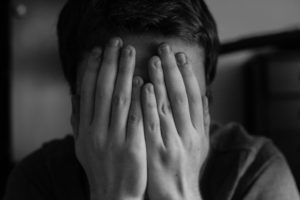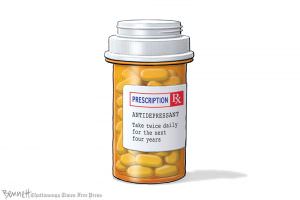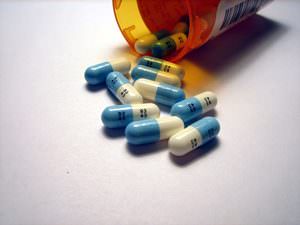British Psychologists Find Fault With DSM-V
England's Division of Clinical Psychology, which represents more than 10,000 practitioners, has criticized the latest edition of the field's leading diagnostic manual for its categorizing of normal behaviors -- such as shyness in children and depression after the death of a loved one -- as medical problems treatable with drugs.
England’s Division of Clinical Psychology, which represents more than 10,000 practitioners, has criticized the latest edition of the field’s leading diagnostic manual for its categorizing of normal behaviors — such as shyness in children and depression after the death of a loved one — as medical problems treatable with drugs.
The debate centers on whether behaviors that are clinically labeled as disorders have either biological or social sources, or some combination of the two. The fifth edition of the Diagnostic and Statistical Manual, published this month, treats mental health as a biological issue.
The British group is calling for a shift in the way mental health is viewed and treated, saying that practitioners of psychology should look for personal and social causes of perceived aberrations rather than behaving as if they were doctors of physical medicine.
“In essence, instead of asking ‘What is wrong with you?’ we need to ask ‘What has happened to you?’ ” said Dr. Lucy Johnstone, a consultant clinical psychologist who helped draw up a statement the group released on the matter. “Once we know that, we can draw on psychological evidence to show how life events and the sense that people make of them have led to the current difficulties.”
A potential departure from a medical basis for psychiatry would concern drug companies that profit hugely off the sales of pharmaceutical products.
But many people seem to be suffering unnecessarily as a result of the field’s current emphasis. Eleanor Longden, who The Guardian writes “hears voices and was told she was a schizophrenic who would be better off having cancer as ‘it would be easier to cure,’ ” explained that she had a breakthrough when a psychiatrist simply asked her to tell him about herself. “In a paper for the academic journal, Psychosis, Longden recalled: ‘I just looked at him and said ‘I’m Eleanor, and I’m a schizophrenic.’ “
Longden wrote: “And in his quiet, Irish voice he said something very powerful. ‘I don’t want to know what other people have told you about yourself, I want to know about you.’ “
“It was the first time that I had been given the chance to see myself as a person with a life story,” she said, “not as a genetically determined schizophrenic with aberrant brain chemicals and biological flaws and deficiencies that were beyond my power to heal.”
A recent article in the online edition of the British Medical Journal noted “that only one in seven people actually benefits” from antidepressants, and claimed that three-quarters of the experts who drafted the definitions of mental illnesses had connections to drug companies.
— Posted by Alexander Reed Kelly.
Your support matters…The Observer:
[T]he DCP has transformed the debate about diagnosis by claiming that it is not only unscientific but unhelpful and unnecessary.
“Strange though it may sound, you do not need a diagnosis to treat people with mental health problems,” said Dr Lucy Johnstone, a consultant clinical psychologist who helped to draw up the DCP’s statement.
“We are not denying that these people are very distressed and in need of help. However, there is no evidence that these experiences are best understood as illnesses with biological causes. On the contrary, there is now overwhelming evidence that people break down as a result of a complex mix of social and psychological circumstances – bereavement and loss, poverty and discrimination, trauma and abuse.”
Independent journalism is under threat and overshadowed by heavily funded mainstream media.
You can help level the playing field. Become a member.
Your tax-deductible contribution keeps us digging beneath the headlines to give you thought-provoking, investigative reporting and analysis that unearths what's really happening- without compromise.
Give today to support our courageous, independent journalists.






You need to be a supporter to comment.
There are currently no responses to this article.
Be the first to respond.